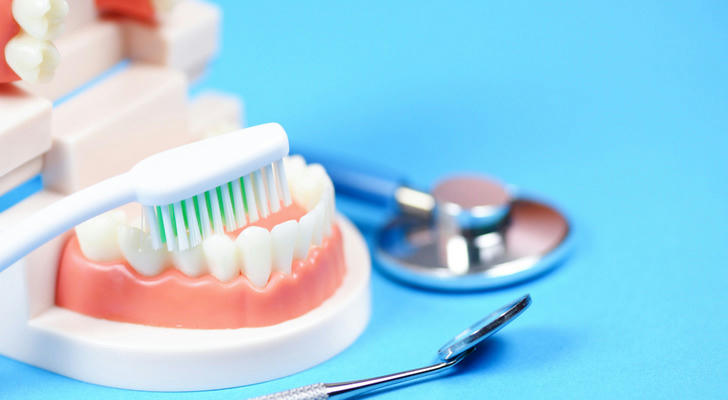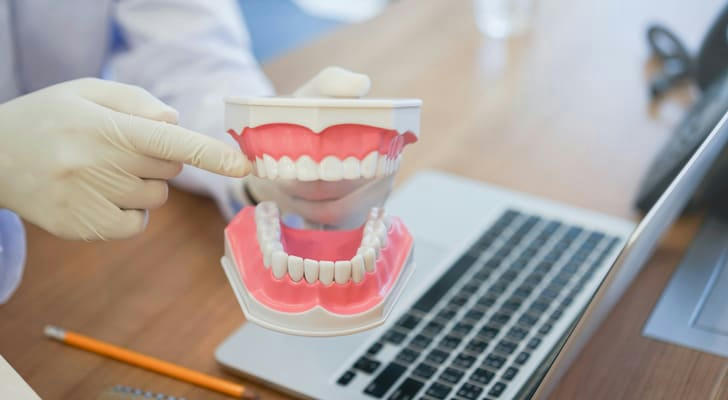Dental Health Is Crucial: How Long Has It Been Since You Last Had Dental Care

The importance of dental care cannot be exaggerated. Because it plays an important role in maintaining overall health. However, one key aspect that often gets overlooked is the frequency of dental visits. Many individuals may not realize how long it has been since their last dental appointment, which can have major impact on oral health.
Why do we need regular dental care?
Because of our busy lives, we often forget to take care of our teeth and gums, which can cause various dental issues. In addition, emergencies can happen at any time. From intense toothaches to broken teeth, these urgent dental issues need immediate help to ease pain and stop more harm. However, if we practice regular oral hygiene, we can avoid these problems.
Here are some benefits of taking a regular dental care:
Regular dental care is essential for maintaining good oral health and overall health. By visiting your dentist for check-ups and cleanings, you can prevent dental issues, keep your mouth clean, and boost your confidence. Don't underestimate the importance of regular dental care in keeping your teeth and gums healthy and beautiful.
1.Preventive care: Regular dental check-ups and cleanings can help prevent dental issues such as cavities, gum disease, and tooth decay. By catching these problems early on, you can prevent them from getting worse and needing more serious treatments later on.
2.Oral hygiene maintenance: Regular brushing, flossing, and professional cleanings help to maintain good oral hygiene, preventing bad breath, tooth staining, and other oral health issues.
3.Save money in the long run: Early treatment of dental issues can prevent them from becoming more serious and costly, such as filling a small cavity before it requires a root canal or extraction. Ms. Wang is a 32-year-old designer who recently felt some pain in her teeth. She decided to go to the dentist for a checkup and was diagnosed with tooth decay. The dentist recommended immediate filling treatment to prevent the decay from getting worse, which cost $150. However, due to her busy work schedule, she delayed the treatment. A few months later, she felt the tooth pain getting worse, and the examination revealed that the tooth decay had developed into pulpitis, requiring root canal treatment, which totaled about $1,200. Because of the delay in treatment, she spent an extra $1,050 and had an impact on her quality of life.
4.Personal confidence: Regular dental care can help you maintain a beautiful smile. A healthy and attractive smile can boost your confidence and self-esteem in social and professional situations.

When is oral care necessary?
Signs that dental care may be needed include tooth pain, sensitivity to hot or cold, swollen or bleeding gums, bad breath, loose teeth, and changes in the appearance of the teeth or gums. Regular check-ups with a dentist can also help identify any potential issues early on.
1.Tooth pain: Cracked tooth, abscess, or gum disease. It is important to seek prompt dental care if experiencing persistent or severe tooth pain.
2.Swollen or bleeding gums: Bleeding gums can be a sign of gum disease, which can lead to tooth loss and other issues if left untreated.
3.Loose teeth: If left untreated, loose teeth can lead to tooth loss and other dental complications.
4.Changes in the appearance of the teeth or gums
5.Sensitivity to hot or cold

How to Find A Low-Cost or Free Dental Care?
1.Seek Help from Nonprofit Organizations: Contact nonprofit organizations for low-cost dental care options. Additionally, consider local community clinics that offer dental services at reduced costs. Inquire about their dental programs, which may include a range of services such as cleanings, fillings, extractions, and dentures.
2.Contact Dental School: Dental schools and training institutions often provide affordable dental services. Contact nearby dental schools to learn about their student clinics, where treatments are offered at reduced rates under the supervision of experienced dental professionals.
3.Government Aid Programs: Governments often provide periodic dental services, so you can check if you are eligible for dental care.
4.Discount Plan: Think about joining a dental discount plan, which provides lower rates on dental services and can be a cost-effective option compared to standard insurance.

Conclusion
All in all, maintaining good dental health is essential for overall well-being. If it has been a while since your last dental visit, consider exploring affordable options such as dental schools, student clinics, or discount plans to ensure your oral health is taken care of. Remember, prevention is key when it comes to dental care.
